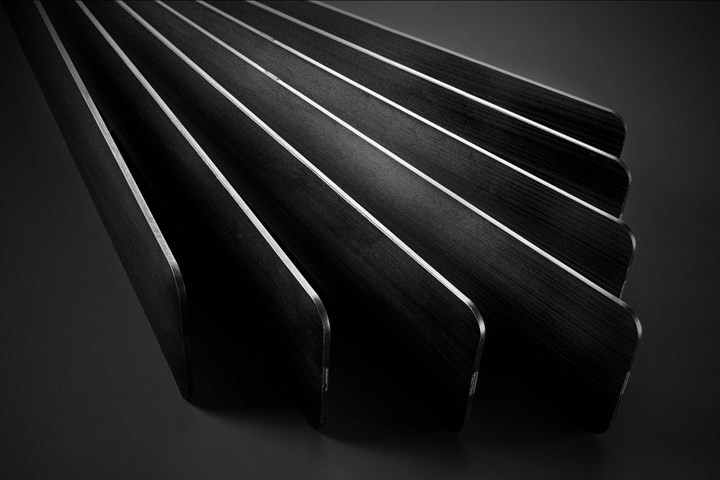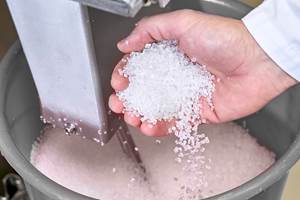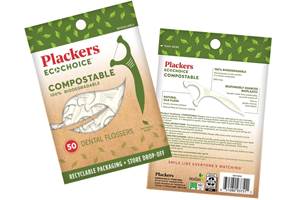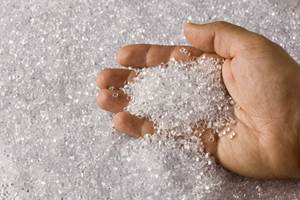Carbon-Fiber Reinforced PPA for Structural Automotive and Electronic Components
BASF’s new Ultramid Advanced N PPA now offered with carbon fiber reinforcement for a broad range of auto applications and electronics.
Positioned to replace aluminum and magnesium in a broad range of structural automotive and consumer electronics applications are the latest addition to the Ultramid Advanced N (PA9T) PPA from BASF Performance Materials, are carbon-reinforced (CF) grades. The Ultramid Advanced N PPA portfolio has been expanded with 20%, 30%, and 40% carbon-fiber reinforced grades for the production of extremely lightweight parts that can safely replace aluminum and magnesium without loss in stiffness and strength and are also electrically conductive.
The new grades combine these properties with the advantages of Ultramid Advanced which reportedly makes them unique among carbon-fiber reinforced PPAs already available in the market: high dimensional stability due to low water uptake, excellent chemical and hydrolysis resistance, high strength and modulus. The new CF reinforced grades can be used to manufacture automotive structural parts for body, chassis and powertrain, for pumps, fans, gears and compressors in industrial applications as well as for stable and ultra-lightweight components in consumer electronics.
The mechanical performance of the new CF PPA grades can be tuned by the choice and the content of the carbon fiber as well as by the additive technology. Ultramid Advanced N3HC8 with 40% carbon fiber content shows a better strength and modulus at 80 C/176 F (conditioned) than magnesium or aluminum. Said Michael Pilarski from BASF’s PPA 大象传媒 management, "Our new PPA compounds with carbon fibers are the ideal metal replacement. And this not only from a material property point of view. Lately, we have seen safety issues at magnesium producers in different countries, which makes the supply rather unpredictable. Producing parts out of magnesium or aluminum also requires additional postprocessing and tooling which increases system costs. Given the opportunities for 25 to 30% weight reduction with our new PPA grades, we can offer a safe, cost-efficient and high-performance alternative for parts traditionally manufactured from metal."

According to the company, combining these new materials with BASF’s Ultrasim simulation software to correctly model part behavior and optimize mold geometry, the Ultramid Advanced CF grades can thus contribute to functional integration and weight reduction in different industries: the range of cars with e-drive or fuel cell engines can be increased by weight reduction of structural or powertrain parts; lightweight, thin precision structures in consumer electronics benefit from the high stiffness and strength, the excellent dimensional stability as well as the extremely low weight and the good processability of the new PPA materials; heavy, highly loaded and longlasting industrial equipment like pumps and compressors can be easily produced because of the good dimensional stability as well as the high chemical, heat and abrasion resistance of the new CF grades.
The CF PPA compounds also show a lower weight and higher tensile modulus than glass-fiber reinforced nylons with similar reinforcements. PPA grades reinforced with 20% carbon fibers are about 20% lighter than nylons 6 and 66 filled with 50% glass fibers. The tensile strength of a 20% CF Ultramid Advanced compound is either better or equivalent to a glass fiber reinforced nylon filled with 50% while showing better processability. Ultramid Advanced N3HC8 e.g. is very stable after aging at high temperatures: It retains nearly 100% of its tesile modulus after heat aging at 120 C/248 F for 5,000 hours or at 150 C/302 F for 3,000 hours.
BASF’s Ultramid Advanced PPA portfolio is based on four polymers: PA9T, T1000 (PA6T/6I), T2000 (PA6T/66) and the long-standing T KR (PA6T/6). They open the door to the next generation of lightweight, high-performance plastic components in many different sectors including the automotive industry, electronics and electric devices, mechanical engineering and consumer goods. Available globally, the PPA portfolio includes more than 50 compounded grades for injection molding and extrusion, products with or without flame retardants. The compounds are available in different colors, from colorless to laser-markable black, with short-glass, long-glass or carbon fiber reinforcement, and with various heat stabilizers.
Related Content
Prices Up for All Volume Resins
First quarter was ending up with upward pricing, primarily due to higher feedstock costs and not supply/demand fundamentals.
Read MoreHow to Optimize Injection Molding of PHA and PHA/PLA Blends
Here are processing guidelines aimed at both getting the PHA resin into the process without degrading it, and reducing residence time at melt temperatures.
Read MorePrices Up for PE, PP, PS, Flat for PVC, PET
Trajectory is generally flat-to-down for all commodity resins.
Read MorePolymer Showdown — PC/ABS vs. PC/PBT — May the Best Material Win
First in a series, experts from plastics engineering consultancy The Madison Group will pit leading thermoplastics against each other to see how they differ in processing characteristics, chemical resistance, thermal and mechanical performance, and more.
Read MoreRead Next
For PLASTICS' CEO Seaholm, NPE to Shine Light on Sustainability Successes
With advocacy, communication and sustainability as three main pillars, Seaholm leads a trade association to NPE that ‘is more active today than we have ever been.’
Read MoreMaking the Circular Economy a Reality
Driven by brand owner demands and new worldwide legislation, the entire supply chain is working toward the shift to circularity, with some evidence the circular economy has already begun.
Read MoreLead the Conversation, Change the Conversation
Coverage of single-use plastics can be both misleading and demoralizing. Here are 10 tips for changing the perception of the plastics industry at your company and in your community.
Read More













